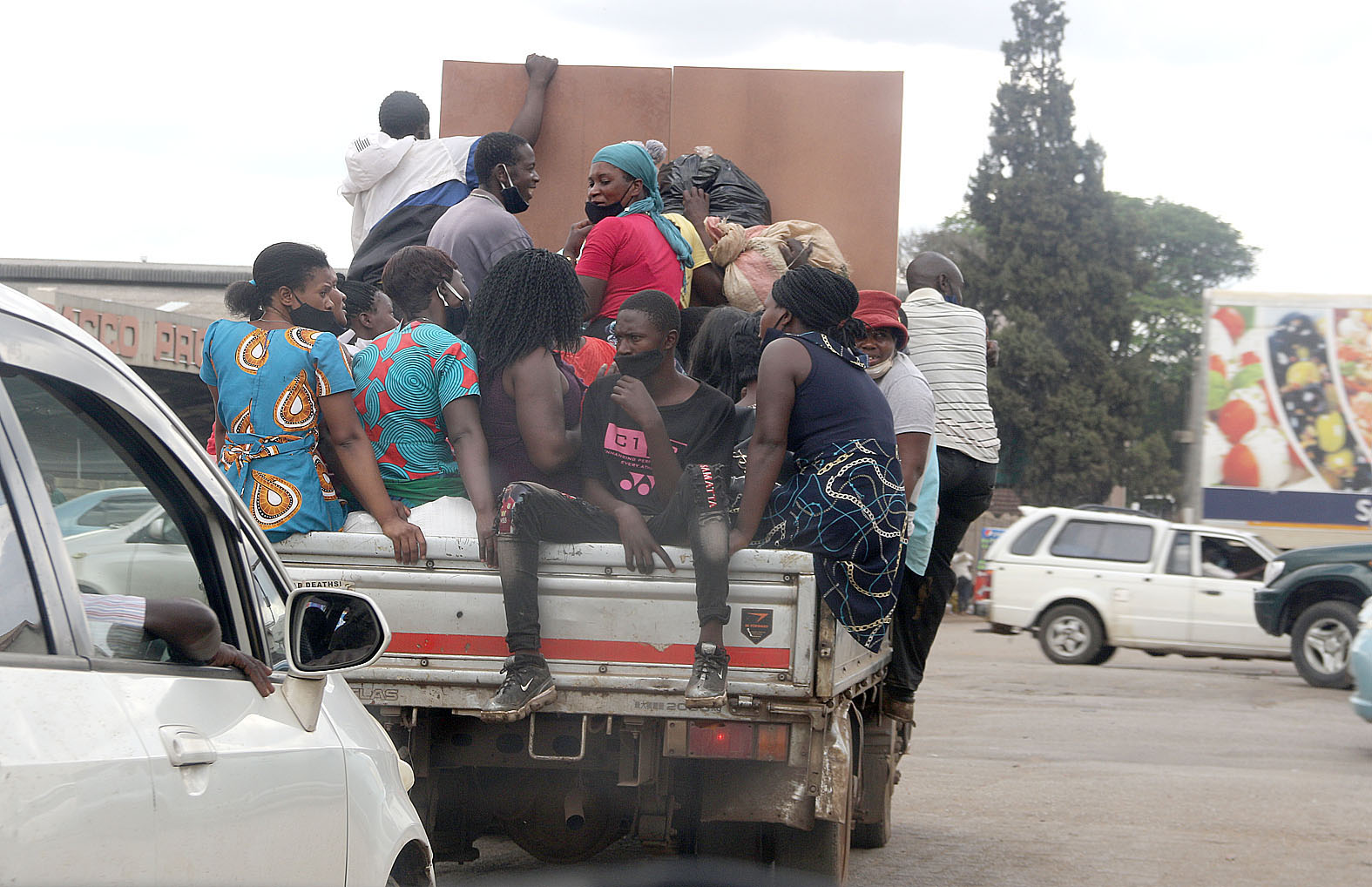By Margaret Chinowaita
Since the first national lockdown in April 2020, Zimbabwean commuters in urban areas have faced teething transport problems. The government banned private public transport operators, only allowing the ailing state-owned Zimbabwe United Passenger Company, Zupco to provide transport to thousands of commuters.
The move left a lot of commuters stranded for hours waiting for the Zupco buses or take a chance at hitch-hiking to and from work every day. Many struggling car owners saw an opportunity to share the cost of fuel, which at many fuel service stations is sold in the scarce United States dollar.
However, some daring individuals started pirating – operating illegal public transport services. The services, despite the illegality, brought some relief to the commuters who frequently were travelling behind schedule as the Zupco service does not operate on a timetable basis.
The thriving illegal public transport services came along with their own problems, among them robbers and rapists who targeted women.
Early this month, police arrested Sam Muropa who stands accused of robbing 21 women and raped as many as six between July and August this year.
Muropa, according to a police statement, committed the heinous crimes while posing as an illegal public transport operator using a Toyota Wish station wagon.
The police said Muropa targeted women. He would stop and offer them transport but would later divert from the route and rob or rape the victims in secluded areas before dumping them.
Muropa, who sometimes misrepresented himself as a soldier with a forged military identity card, ran out of luck in September. He was arrested and charged with robbing 21 women and sexually abusing six of the victims. Muropa however staged a daring prison break that lasted three days.
There was a public outcry when police only announced the outbreak only after they had rearrested Muropa. Citizens complained about the police silence when a criminal was roaming around and the public transport woes are still around, putting the commuting public at risk.
The shocking horror stories of women being robbed or raped while trying to get to work or home is a stark reminder that females are not safe. Commuting to and fro work becomes a daring gamble for Harare women. It should be noted that robbery and rape is the worst kind of abuse but these women also suffer from being molested or sexually harassed at the commuter ranks from touts or other male commuters.
Commuting over the past year has become a nightmare. Many commuters spent over three hours moving from the high-density suburbs to the city centre as police checks were a common sight on all major roads. Vehicles would back up to three or four kilometres from the police checks.
Citizens are taking too much time travelling to and from work. Some new suburbs out of Harare like Hopley, Southlea and parts of old locations are not serviced by Zupco busses.
The transport situation requires a holistic solution that among other things include multi-stakeholder cooperation, a new efficient public transport system and curbing corruption among police officers. The public transport services should also be made safer for commuting women and girls.
In the meanwhile, a starting point should be the relicensing of private transport operators so that they come back on the roads. This would cut the waiting time for transport and bring back some semblance of normalcy to the commuting public.
However, the operators should comply with a strict set of regulations that should include operating from designated points, removal of touts from ranks and strict adherence to vehicle capacity and speed limits on the roads.
There should also be a medium-term plan to scale up and improve the commuting experience by Zupco. This should include having the right fleet mix for peak and off-peak periods, time-tabled services and better controls at the termini.
Road transport is the most dominant mode of motorised transport in Africa, accounting for 80% of the goods traffic and 90% of the passenger traffic on the continent. African countries together have about 2,06 million km of roads in 2001, resulting in a road density of 6,84 km per 100sq.km.
The following measures; development of additional road capacity, traffic management measures, effective use of bus service, parking restrictions, promoting the use of bicycles, encouraging walking and promoting public transport are helpful steps to solving the problems of urban transport.
Zimbabwe is currently constructing roads leading to the big cities, I hope we will also adopt the steps outlined above and most importantly stop corruption and respect citizens on the road.
Image rights obtained



